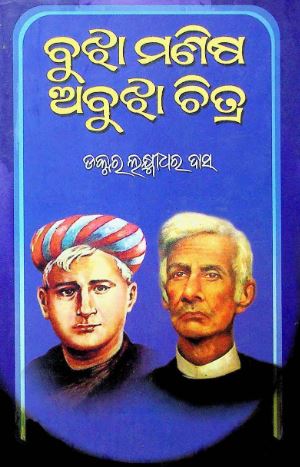Bujha Manisa Abujha Chitra by Lakshmidhar Das, a thought-provoking essay book published in 2017, stands as a profound exploration of human perception, cognition, and the intricacies of understanding. Through a collection of insightful essays, Das delves into the complexities of human consciousness, unraveling the enigmatic interplay between what is understood and what remains elusive to the human mind.
One of the key themes that reverberates throughout the essays in “Bujha Manisa Abujha Chitra” is the exploration of human psychology and its implications on individual behavior and societal dynamics. Das delves deep into the labyrinth of the human mind, dissecting the factors that shape one’s perceptions, biases, and interpretations of the world around them. Through his keen observations and incisive analysis, the author sheds light on the intricate mechanisms of human thought and the ways in which they influence our actions and relationships.
Moreover, Das engages in a thought-provoking discussion on the nature of knowledge and ignorance, drawing parallels between the realms of comprehension and mystification. He posits that the human mind is a complex canvas where clarity and obscurity coexist in a delicate balance, giving rise to a nuanced understanding of reality. By exploring the concept of “Bujha Manisa” (the understanding individual) and “Abujha Chitra” (the unknowable image), Das invites readers to contemplate the limitations of human understanding and the perpetual quest for enlightenment.
In his essays, Das references the literary works of stalwarts like Bankimchandra and Fakir Mohan, drawing parallels between their narratives and the existential dilemmas faced by individuals in contemporary society. Through a comparative analysis of classic literature and modern thought, the author highlights the timeless nature of human struggles and aspirations, emphasizing the enduring relevance of literature in illuminating the human condition.
Bankimchandra Chattopadhyay, known for his iconic works like “Anandamath” and “Durgeshnandini,” is celebrated for his profound insights into patriotism, spirituality, and social reform. His works often grapple with the dichotomies of tradition and modernity, individualism and collectivism, showcasing a deep understanding of the human psyche and its yearnings.
Fakir Mohan Senapati, on the other hand, is revered for his realistic portrayals of Odia life and society during the colonial era. His stories resonate with themes of social injustice, moral dilemmas, and the complexities of human relationships, offering a poignant reflection on the challenges faced by individuals in a rapidly changing world.
In essence, “Bujha Manisa Abujha Chitra” by Lakshmidhar Das stands as a testament to the enduring power of introspection, inquiry, and intellectual exploration. Through his incisive essays and engaging discussions, Das invites readers on a journey of self-discovery and contemplation, urging them to unravel the enigmatic tapestry of human consciousness and perception. This book is a testament to the boundless capacity of the human mind to grapple with the mysteries of existence and seek enlightenment amidst the shadows of ignorance.
Books Info
| Books name | Bujha Manisa Abujha Chitra/ବୁଝା ମଣିଷ ଅବୁଝା ଚିତ୍ର |
| Author | Lakshmidhar Das |
| No Of pages | 628 |
| Publisher | Bijayinee Publications |
| Publication | 2017 |
| Printed At | Sangita Printers |
| Distributor | NA |

